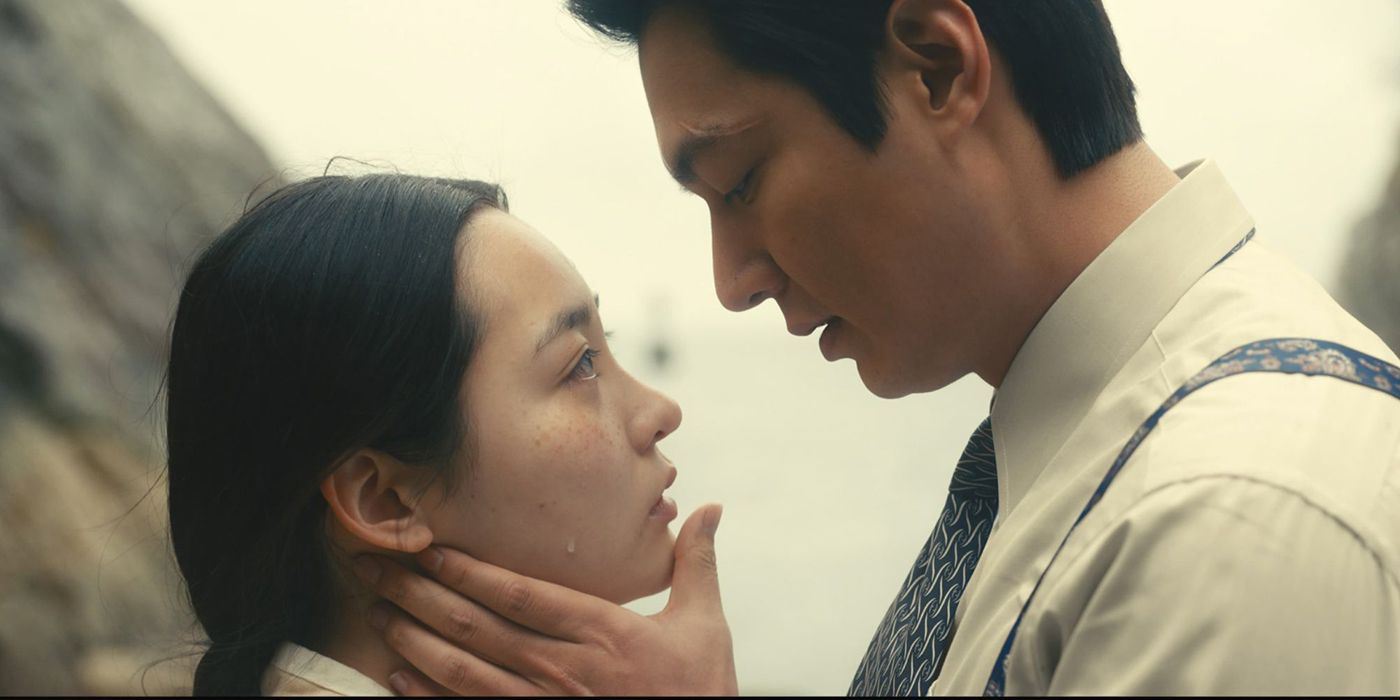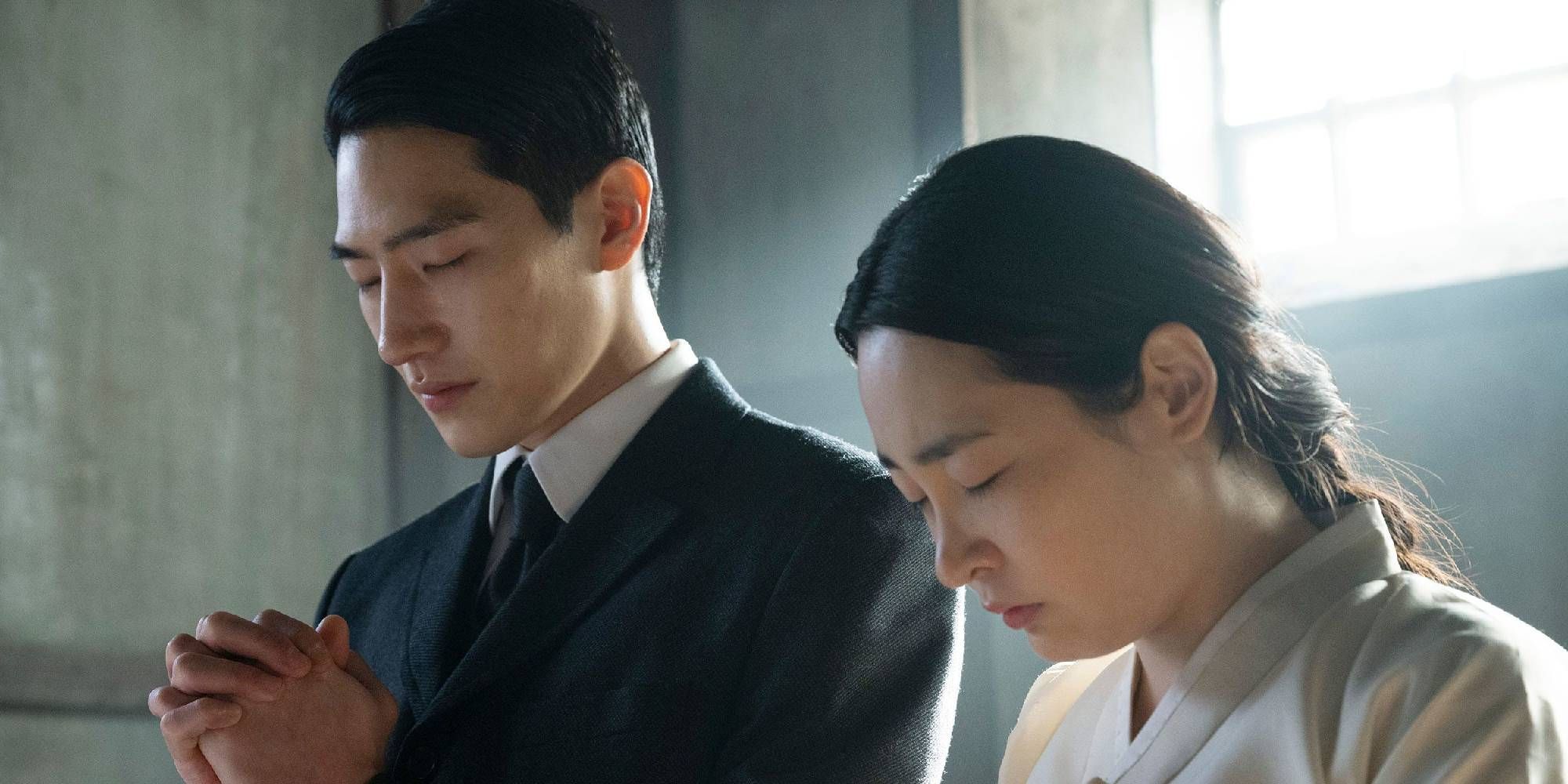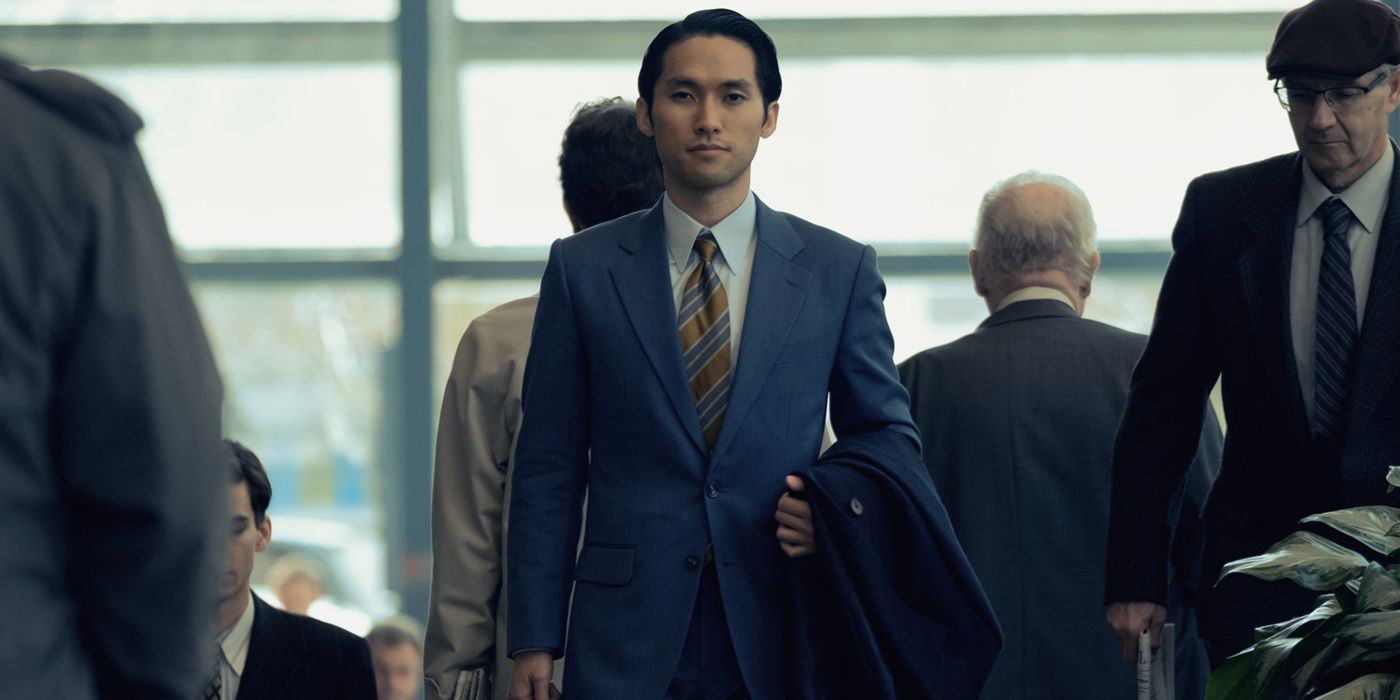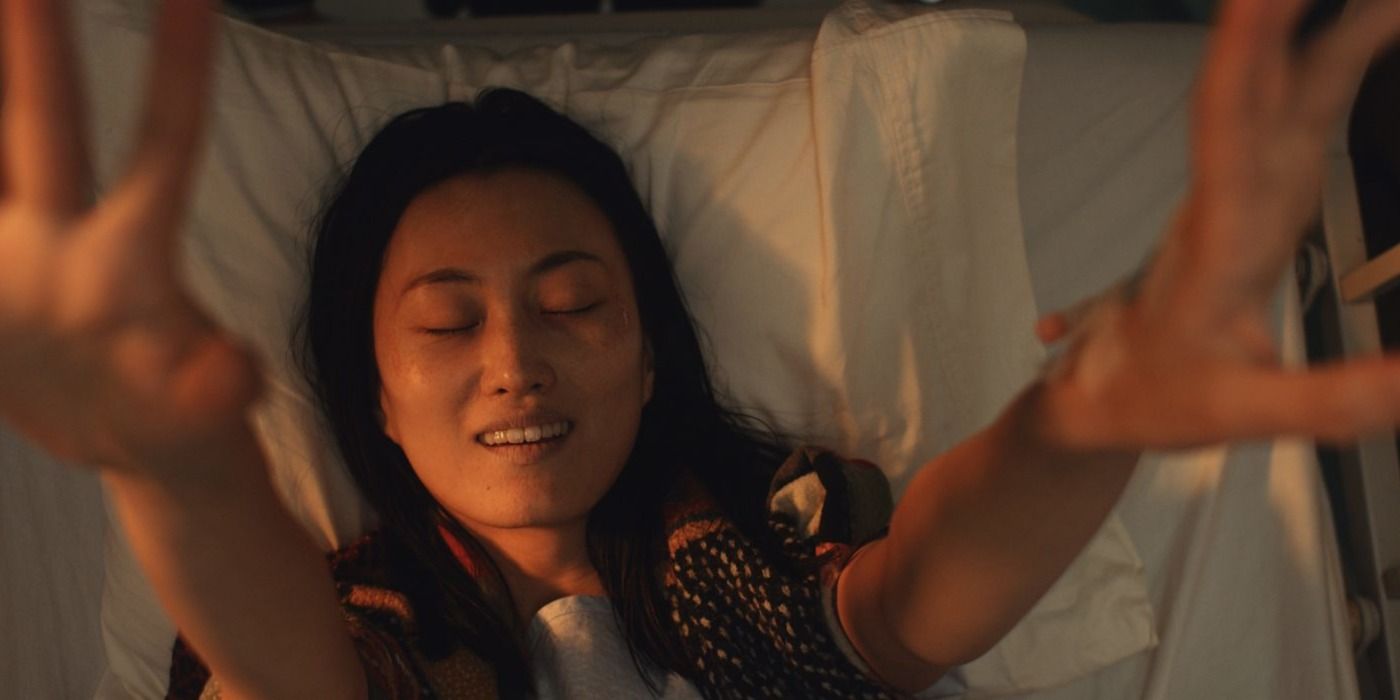The Big Picture
-
Pachinko
tells a family saga across two timelines in Korea and Japan. - The protagonist Sunja faces struggles in the 1930s and marries a Protestant minister after she is left pregnant by another man, and raises her family in Osaka.
- In the 1980s, Sunja’s grandson, Solomon Baek, returns to Japan to close a business deal in order to secure a raise at his American company.
A story of resilience, perseverance, and sacrifice, Apple TV+’s Pachinko has captured the hearts of many with its epic family saga spanning four generations of a Korean family living on Japanese grounds. Based on the New York Times bestselling novel by Min Jin Lee, Pachinko is primarily told through the eyes of Kim Sunja, beginning well before her birth in 1915 during the Japanese annexation of Korea, and following her journey to becoming a grandmother in the modern, westernized, and capitalism-driven Japan of 1989. The series, which has received 11 international awards, including a Critics Choice Award and a Peabody Award, continues in its second season as Sunja and her family face a new era in their lives. Season 2 of Pachinkopremieres on August 23, 2024, on Apple TV+, followed by one episode weekly every Friday through October 11. In the meantime, here are some things to remember from Season 1.
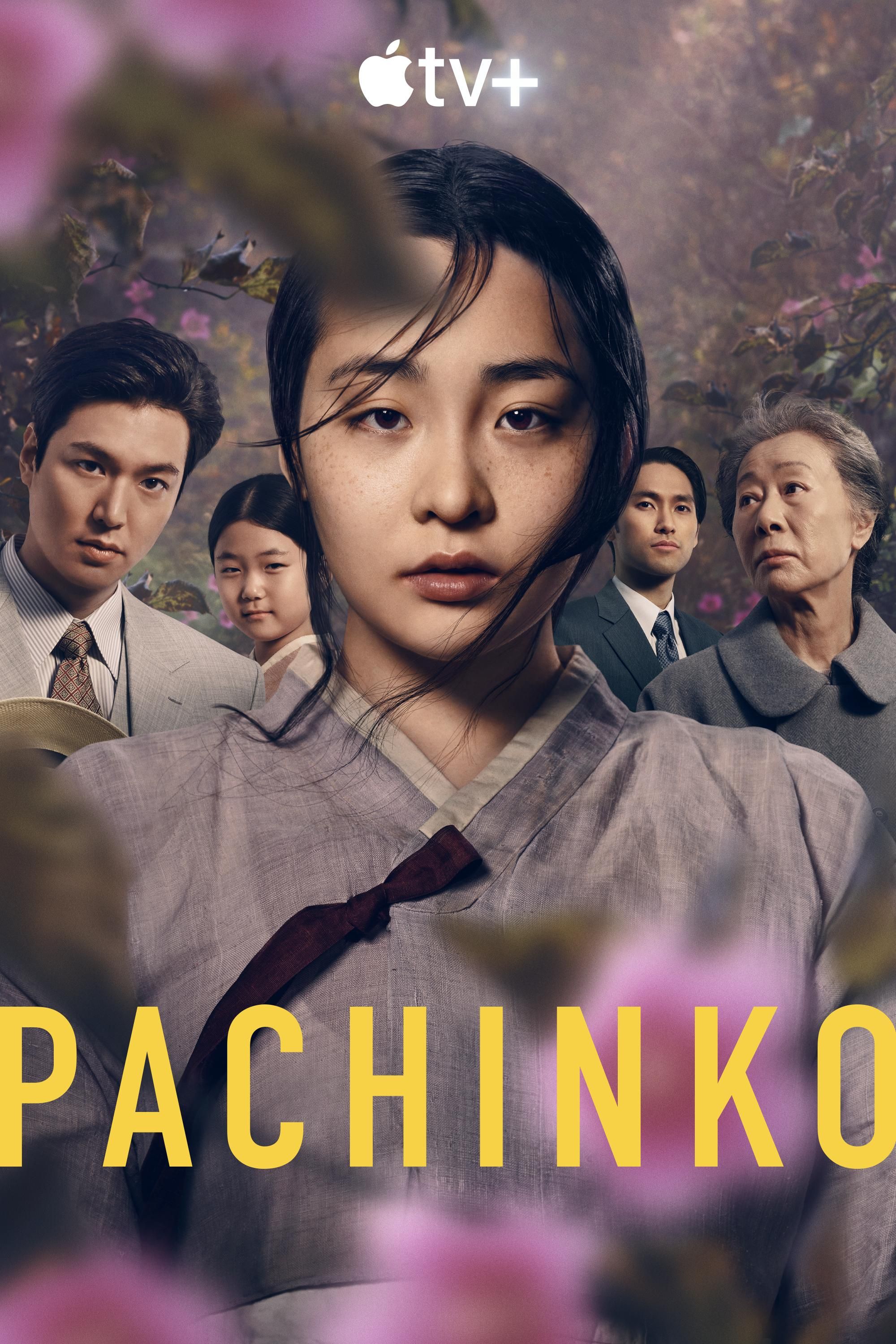
Pachinko
Based on the New York Times bestseller, this sweeping saga chronicles the hopes and dreams of a Korean immigrant family across four generations as they leave their homeland in an indomitable quest to survive and thrive.
- Release Date
- March 25, 2022
- Creator
- Soo Hugh
- Cast
- Jin Ha , Soji Arai , Jun-woo Han , In-ji Jeong
- Main Genre
- Drama
- Seasons
- 2
‘Pachinko’ Is Told Across Two Different Timelines
Season 1 of Pachinko shifts back and forth between two periods in history: one taking place between 1915-1930s Yeongdo-gu, Busan, Korea, and the other set in 1989 Tokyo and Osaka, Japan. The first storyline begins with the complicated birth of Sunja (Yu-na). Sunja’s mother, Yangjin (Jeong In-ji), experiences a difficult period conceiving children. Despite having been pregnant thrice, all three of her first children do not live to see their first birthdays. After visiting a local shaman, Yangjin miraculously gives birth to Sunja, much to the happiness of Yangjin and her cleft-lip husband, Hoonie (Lee Dae-ho). During a period where the birth of male children is more prized than female children, surprisingly, Hoonie loves Sunja very much. Unlike the stricter Yangjin, Hoonie wants Sunja to be independent, resourceful, and most importantly, kind. Unfortunately, Hoonie passed away due to tuberculosis before he could even see his daughter grow up. Following the death of Hoonie, Yangjin and Sunja take over his boardinghouse and successfully run it by themselves, along with their two employees, Shin Bokhee (Yeon Ye-ji) and Shin Donghee (Kim Bo-min).
Meanwhile, in 1989, Sunja’s grandson, the Yale-educated Solomon Baek (Jin Ha), is a businessman in New York City. Despite his two years of impressive performance, Solomon does not receive his much-deserved promotion from his superior. Solomon then proposes that he be assigned to Japan to close a business deal worth millions of dollars and that he is sure that he can convince the Korean woman to stall the deal. In return, Solomon expects a promotion to Vice President and a pay raise per his expectations. Upon his return to Japan, Solomon makes a brief quick pit stop to Osaka. Once there, he visits his father, Baek Mozasu (Soji Arai) at his highly successful pachinko parlor. Solomon also reunites with his now elder grandmother Sunja (Youn Yuh-jung) and Mozasu’s girlfriend, Etsuko (Kaho Minami). Later on, it is also revealed that Sunja is the caretaker to her sister-in-law, Kyunghee (Felice Choi), now bedridden due to cancer.
Sunja Falls in Love With Fish Broker Koh Hansu
In the 1930s, Yeongdo remained annexed by Japan. Japanese authorities are constantly patrolling public spaces, scouring for Koreans who might share anti-Japanese sentiments. The now teenage Sunja (Kim Min-ha) continues to run the boarding house with her mother, now mainly in charge of buying produce at the fish market and doing the washing. One day at the market, Sunja comes into contact with the new fish broker, the much older Koh Hansu (Lee Min-ho). Hansu is a Zainichi Korean (a Korean residing in Japan) who is originally based in Osaka. Despite ignoring his constant staring, it becomes obvious that Hansu is smitten by Sunnja’s headstrong attitude, quick-thinking, and independence.
It doesn’t take long until the two begin a secret romance, ultimately making love in the woods. Not long after, Sunja gets pregnant, all while Hansu mysteriously disappears from Yeongdo. Upon Hansu’s return, Sunja immediately embraces Hansu and breaks the good news of her pregnancy to Hansu. But Hansu isn’t able to marry Sunja as he is already in a marriage of convenience with a Japanese wife and already has three daughters back in Japan. Asserting that Sunja’s child will be a boy, Hansu is willing to financially provide Sunja for the sake of their future child. The distraught Sunja is heartbroken learning of Hansu’s marriage and refuses to live in shame as his mistress and rejects his offer, never wanting to hear from him again.
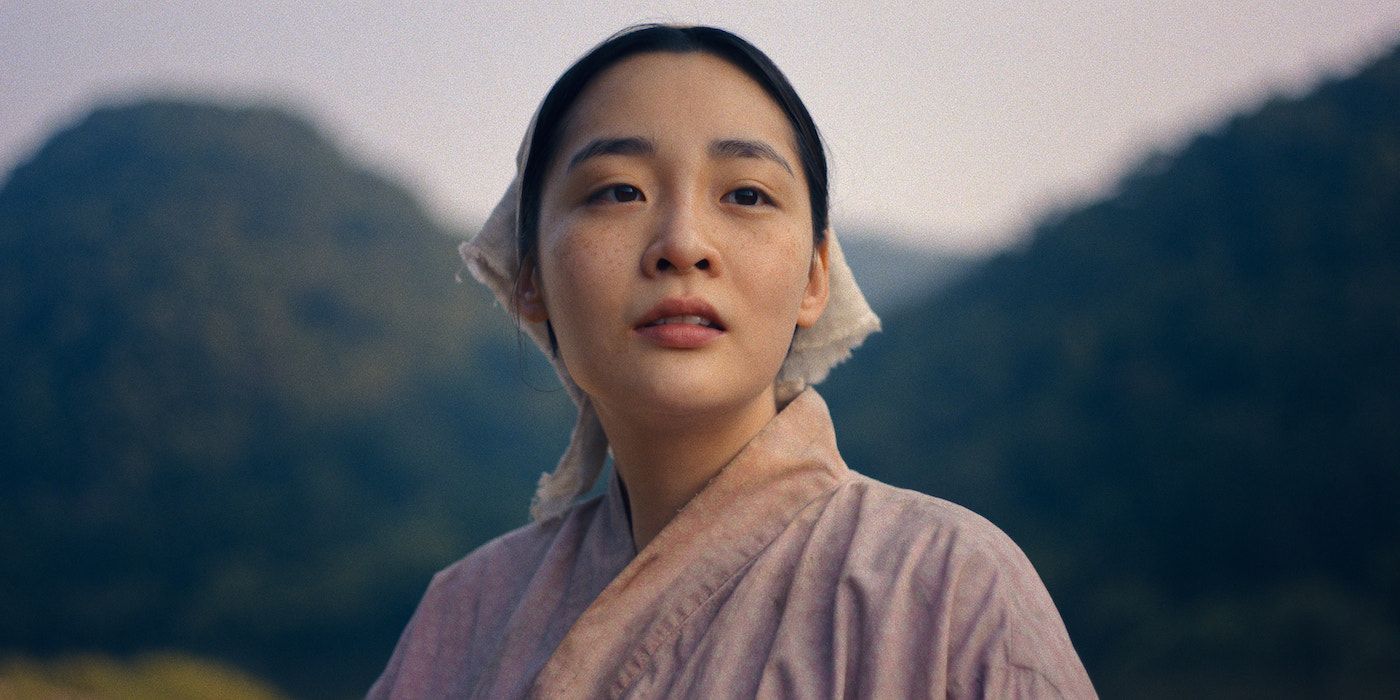
Related
‘Pachinko’ Season 2 Review: One of TV’s Best Shows Triumphantly Returns
As Season 2 expands outward and again rearranges the story’s structure, it finds even greater resonance.
Sunja Marries Protestant Minister Baek Isak and Moves to Osaka
Not long after a devastated Sunja returns to the boarding house, a mysterious man appears at their doorstep and suddenly faints during a heavy rain storm. Yangjin and Sunja take him in and discover that the sickly man is Baek Isak (Steve Sang-Hyun Noh), a Protestant minister traveling from Pyongyang to Osaka. While Isak spends the next few days recovering, Sunja confesses to Yangjin about her pregnancy but does not reveal Hansu’s identity. As Yangjin and Sunja cry their heart out over Sunja’s fatherless pregnancy, Isak, now well-rested and already awoken, overhears their conversation from his room.
Knowing this, Isak proposes marriage to Sunja to save her honor by making her a married woman on the condition that, with time, Sunja could come to care for him as her husband. Sunja agrees and marries him, leaving with him to go back to Osaka in 1931. There, they live in a shabby house in Ikaino, the Korean neighborhood in Osaka, with Isak’s brother, Baek Yoseb (Han Jun-woo), and his wife, Kyunghee (Jung Eun-chae). Sunja eventually gives birth to her first son, Baek Noa (Park Jae-jun). Later, she gives birth to her second son, Mozasu. Unfortunately, in the last episode of the season, Isak is taken away by Japanese authorities for defending anti-Japanese sentiments with rebels, leaving Sunja alone to financially support her family by selling kimchi at the market, a responsibility she bravely takes despite the odds against her.
Solomon Baek Fails To Close the Deal
In 1989, as Solomon gets straight to business at the Tokyo branch of Shiffley’s, he is greeted by his superior, Tom Andrews (Jimmi Simpson), and his reluctant, Harvard-educated colleague, Naomi (Anna Sawai). Solomon attempts to convince the Korean grandmother to sell the land to him for 1 billion yen, saying that it’s best to accept the deal so that she can provide for her children. Despite his convincing, as well as getting his grandmother Sunja to talk to the Korean grandmother for him, the tenant profusely declines. Based on Sunja’s personal observation, it appears the Korean woman would rather die in the house than sell it to anyone. In the middle of the series, Solomon arrives back in the office and is informed by Tom that the Korean grandmother called and agreed to sell the land.
However, in the meeting to close the deal, the Korean grandmother has second thoughts about signing the deal, mostly due to anti-Japanese sentiment. Instead of persuading her to do the deal, in a sudden moment of empathy and remembrance of Sunja’s sacrifice, Solomon tells her in Korean not to do the deal. Instead of signing the meeting, she gets up and leaves. Andrew berates Solomon, and the other Japanese executives (who look down on Solomon because he is Korean) berate Tom for bringing someone like Solomon onto the deal. In the finale, Solomon is let go from Shiffley’s but is approached by the elusive business executive Mamoru Yoshii (Louis Ozawa), who proposes a plan that might involve Mozasu’s pachinko business.
Solomon Baek Reunites With Childhood Sweetheart Hana
Amid his business dealings, Solomon receives mysterious calls from his estranged childhood sweetheart and Etsuko’s daughter, Hana (Mari Yamamoto). Back when they were in their teens, the rebellious and carefree Hana would purposely rile the more rule-abiding Solomon to get a reaction out of him. However, after Hana convinces Solomon to shoplift in a convenience store, Solomon gets caught by the shop owner. After being bailed out by his father, Mozasu decides to send Solomon to America for his education, Hana and Solomon.
In 1989, Hana fervently calls Solomon, telling him how much she hates him for leaving her for the States. Much to Solomon’s frustration, Hana initially refuses to give up her location despite the fact that Etsuko has been searching for her for years. It is later revealed that Hana has AIDS and does not have much time left. Refusing further treatment, Hana tells Solomon that the Hana he knew as a child is gone forever and tells Solomon that, despite his American education and privilege, he will never be Japanese because of his ethnicity. On the brink of death, Solomon gives Hana one last bittersweet farewell accompanied by Etsuko, Mozasu, and Sunja.
Pachinko Season 1 is currently available to stream.
WATCH ON APPLE TV+

